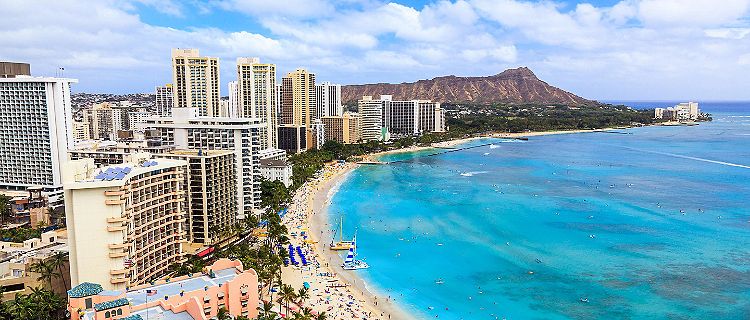Lawmakers in Hawaii are poised to approve a US$25 climate tax on tourists who visit the Aloha State in an effort to combat what they claim is an assault on the area’s natural resources.
The state, which saw 9.5 million people visit last year, is recovering from the devastating wildfires in Lahaina, Maui, which killed at least 100 people and caused damages worth around US$6 billion.
The proposed tax will pay to protect beaches and prevent wildfires, state officials said.
“It’s a very small price to pay to preserve paradise,” Hawaii Governor Josh Green, a Democrat, told The Wall Street Journal.
A tax by the nation’s 50th state would follow in the footsteps of other tourist hot spots including Greece; Venice, Italy; the Galapagos Islands of Ecuador; the Pacific island nation of Palau; Greece; and New Zealand — all of which have levied fees on tourist ranging from US$1 to US$100.
In 2022, Green campaigned on a platform of having all tourists pay a US$50 fee to enter the state, but the proposal failed to gain the necessary votes in the state legislature.
“All I want to do, honestly, is to make travelers accountable and have the capacity to help pay for the impact that they have,” Green told AP last year.
“We get between nine and 10 million visitors a year, (but) we only have 1.4 million people living here. Those 10 million travelers should be helping us sustain our environment.”
Green told The Journal he anticipates that a US$25 fee would raise US$68 million annually for the state, which would then use the money to establish a state fire marshal as well as to help with disaster prevention.
Some legislators think the tax would violate U.S constitutional protections for free travel and have instead promoted year-long licenses or passes to visit parks and trails that are popular with hikers.
Either policy would be a first of its kind for any U.S state.
Hawaii lawmakers are considering other alternatives, including hiking the state hotel tax, which is among the highest in the country.
State Rep. Sean Quinlan, a Democrat who chairs the House Tourism Committee, said changing traveler patterns are one reason behind Hawaii’s push.
He said golf rounds per visitor per day have declined 30 percent over the past decade while hiking has increased 50 percent.
People are also seeking out once-obscure sites that they have seen someone post on social media. The state doesn’t have the money to manage all these places, he said. “It’s not like it was 20 years ago when you bring your family and you hit maybe one or two famous beaches and you go see Pearl Harbor. And that’s the extent of it,” Quinlan said.
